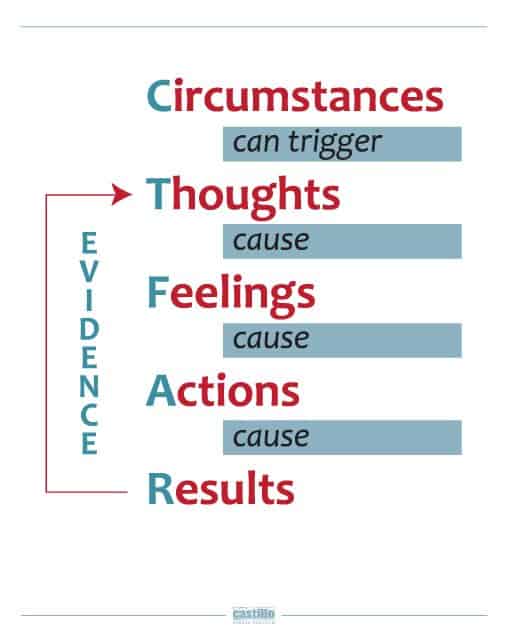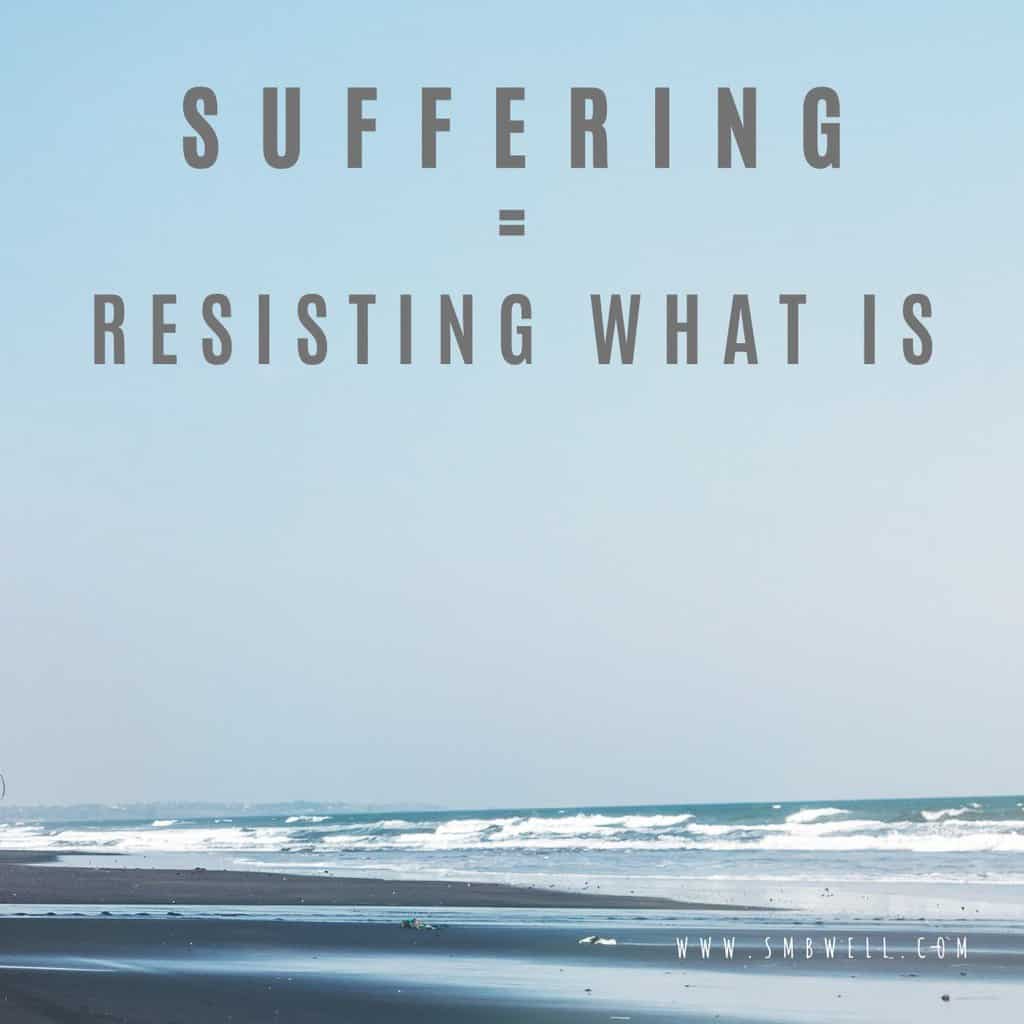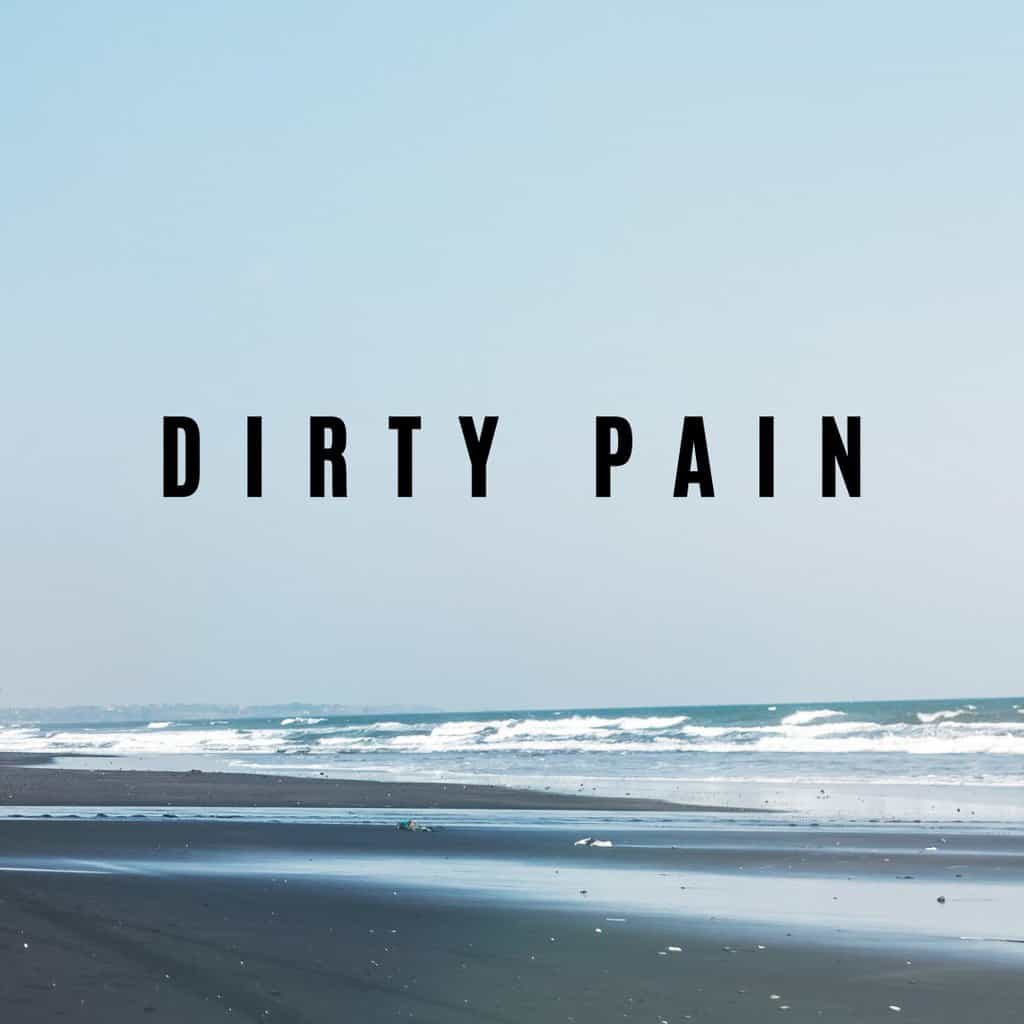Podcast: Play in new window | Download
Subscribe: Apple Podcasts | Spotify | Amazon Music | RSS | More
WTH is Dirty Pain?
Dirty pain is when we take the things that are happening in our life and add unnecessary drama to them. Dirty pain is thinking life should be different than it is. Choosing to experience clean pain versus dirty pain is how I live a life I love. Choosing to avoid dirty pain means that I take responsibility for my emotional state knowing that it’s the thoughts I’m choosing to think that lead me to feel the way I feel. This is not always easy to do yet the more awareness I have that how I feel is because of how I think, the more my brain sets this habit in place and the easier it gets.
Rainbows and Daisies
You’ve heard me say, time and time again, life is not always full of rainbows and daisies. Yet, there are rainbows and daisies right? When you see a garden full of daisies, do you see the bright colors of the flowers, reaching up for the sun? Or do you see the patches of dirt or weeds between the flowers?
Life is full of contrast. If we have clouds, we will have blue skies. If we have relationships, we will have differing opinions. If we have kids, we will have discomfort. It all comes down to what we choose to focus on.
There have certainly been times in my life when I’ve focused on the dirt. When all I could see was the dirt, all I talked about was the dirt, and, if asked, I would’ve been able to give you elaborate details about the dirt. This is a piece of learning and growth. In the same way dirt is needed for flowers, I needed to have periods of my life where I focused on the dirt so I could learn that I am responsible and can choose my focus. This is where clean and dirty pain comes in.
There are going to be difficult times in our life. I’ve spoken a lot about how discomfort is a part of the path to growth and a life we love. When we are pushing to the next best version of ourselves, we are going to experience discomfort. You don’t marry the first man you date. You don’t land the first job you apply for. You don’t crush the first speech you give. Life is an education and the path to success is paved with bumps and bruises.
The Difference Between Clean Pain and Dirty Pain
The difference between clean pain and dirty pain is in how we think about our experiences and the layers of meaning that we give to our experiences. Clean pain is about knowing the difference between what is happening in my life and what I’m making that something mean. Clean pain is about separating the facts from the drama. Clean pain is about not taking things personally. Clean pain is about not trying to read other people’s minds. Clean pain is about not arguing with the past. What happened happened. No amount of thinking about what I wish had been different will change it. Clean pain is about knowing the difference between what I can control and what I can’t.
And yet, we spend a lot of time in dirty pain, looking at the dirt instead of the flowers. At the base level, what I’m talking about 
Simple example: a friend doesn’t reply to your text. That’s in the C line. Clean pain: feeling disappointment that she didn’t get back to you. Dirty pain: trying to read her mind by thinking “she must be angry because of my comment at book club”. Clean pain: Picking up the phone and calling. Dirty pain: letting her take over your day because you’re thinking and thinking and thinking about it. How much time and mental energy do you want to spend on this? Dirty pain is spending more than you intend; in letting it highjack your day.
Another example where I’ve experienced dirty pain and where I see my clients focusing on the dirt is with regard to our past. Dirty pain occurs when we argue with the past and spend time thinking thoughts like: “If only” or sentences with should, could, or would in it. We are trying to change the C line of the model. Not possible.
I used to get into a lot of dirty pain when I thought of my dad and how he showed up for me. I would think thoughts like “if only my dad hadn’t said blah blah blah” or “my dad should’ve had my back in that situation”. Here’s the thing. Whenever we spend time arguing with how things were or what has already happened, we are in dirty pain. This doesn’t mean that we don’t feel big feelings because of things that happened. It’s actually the opposite.
Feel the Feels
In allowing ourselves to feel what we feel, we experience clean pain. We are going to feel sad, disappointed, regret, anger, etc…When my dad didn’t have my back, that was hurtful to me. I was sad and disappointed. However, when I spend time thinking “if only” or “he should have” I am wasting my time. I can’t change the past. That is dirty pain. Clean pain would look like me thinking “I am sad that my dad didn’t stick up for me” or “I’m disappointed my dad said that.” Dirty pain is when we argue with the past. The difference is accepting things for what they are without adding in layers of coulda, woulda, shoulda and then allowing ourselves to feeling the difficult emotion (sad, disappointment) instead of telling yourself it should’ve been otherwise.
The Past Happened Exactly As It Was Meant To
One of the hardest things for me to come to terms with was that the past shouldn’t have been any different.
You know how I know?
Because it wasn’t different.
If it was meant to be different, it would’ve been different.
It happened exactly as it was meant to happen.
Life contains highs and lows.
Joy and sorrow.
Pride and disappointment.
I define suffering as the resistance to what is. When we choose thoughts that argue with how things are, with how
Can you change what happened? No. Unless you have some cool time machine, you don’t have control over what happened and can’t ever change it. What you can control is how much time you spend resisting what happpened; arguing with what happened, thinking about what happened. How much of your mental energy do you want to put into it?
This is not about ignoring what happened or painting a rainbow over it. I encourage you instead to look at what happened. The facts. Then choose what you think of those things that happened.
There’s Life and Then There’s What We Make it Mean.
Be aware and conscious of what you’re making it mean. Clean pain doesn’t feel good; it’s still uncomfortable. But life isn’t about feeling good all the time. We get into trouble when we think it is. Adopt my mantra: Nothing has gone wrong here. When something occurs, get in the habit of asking yourself What are the facts of what happened? What would everyone agree with? My friend didn’t return my text. My dad told my boss his behavior was okay. What do you think about those facts? How do you feel? Anything else is dirty pain.
I’ll end by telling you my version of a Buddhist parable. It is said that in battle (or a difficult life situation), you are hit with an arrow. This arrow can be painful. This is the clean pain; the pain of the situation. We will feel a strong emotion. Dirty pain is when we take that arrow and re-stab ourselves with it over and over. Imagine this: you hit your hand with a hammer and choose to re-hit yourself over and over. That’s dirty pain.
Let’s pay some attention to where we are re-stabbing ourselves this week. Being able to step out of my life and listen in to my thoughts and what I was telling myself about the past has made all the difference in my life. I invite you to join in the love your life journey. Subscribe to the show Get my weekly newsletter. If it’s not too late, sign up for my super popular Finding Joy in Everyday Life Program.
The days are long but the years are short.
How do you want to feel in your days?
What are you waiting for to feel that way?






Trackbacks/Pingbacks